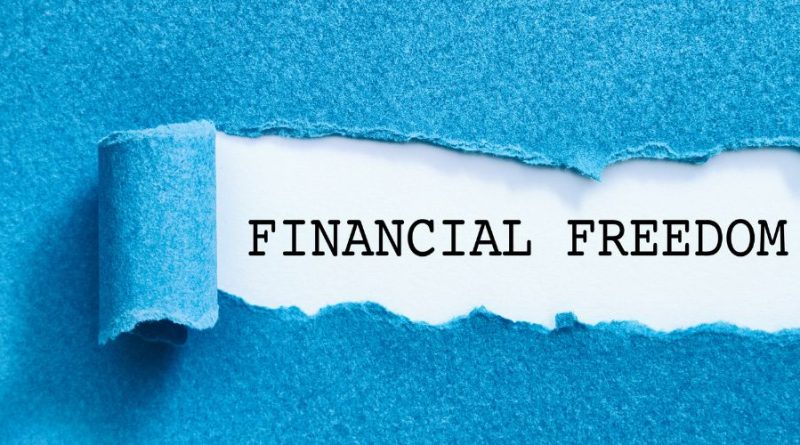financial Freedom Tips
Do you want to achieve financial freedom? If so, that’s great! Financial freedom is something everyone wants, but only some people are able to achieve it.
Here are 5 tips that can help you on your journey to financial freedom.
Table of Contents
Toggle1) Take advantage of tax deductions
When you’re just starting out, it can be tough to find new tax deductions.
But if you know where to look and what kind of expenses qualify, it’s possible that you’ll find some ways to lower your taxable income. Here are some examples:
Health insurance premiums paid by the employer are not taxable income for the employee. – Mileage reimbursement is not taxable income for the employee. – Commuting costs are not taxable income for the employee.

2) Saving
if you want your money to work for you, the best strategy is to put it away in a savings account. The earlier you start doing this, the better off you’ll be.
In fact, if you can save up $1 million by the time you turn 65, that would give you an annual income of $52,000 and make it possible for your nest egg to sustain itself indefinitely!
I know this sounds like a lot of money—and it is—but the good news is that saving doesn’t need to feel like deprivation.
If anything, saving should make us feel empowered and more in control of our financial future.
3) Use your credit card strategically
The most important thing to remember when using your credit card is that it is not a magic wand, It’s possible to get into more debt than you can handle if you’re not careful, so be sure to use these tips.
First and foremost, avoid using your credit-card for anything other than emergencies.
This will allow you to pay off the balance each month without accumulating interest charges. If an emergency pops up and you don’t have the cash on hand, this may be a good option
Second, if your credit limit is large enough, use your card as a backup plan in case of emergency.
4) Get out from under credit card debt

Get out from under credit card debt. If you’re carrying a balance, make it a priority to pay off the entire balance before doing anything else with your money.
If you feel like you need to get out of debt quickly and worry about saving later, try Dave Ramsey’s Debt Snowball Calculator. This tool can help guide your decision on which debts should be paid off first.
There are tons of apps that make it easier than ever to track your expenses and stay on top of your budgeting goals.
Mint is one example – after connecting the app with all of your financial accounts, Mint will automatically categorize transactions and give you personalized advice on how much money is coming in vs going out each month.
5) Automate savings
The first step is the hardest, but it’s also the most important. Automate your savings, and start small.
Whether you’re contributing $100 a month or $10 a week, start today.
The key is consistency. You’ll get there in no time, and before you know it, your hard work will pay off.
6- Know your current financial situation.

To start your journey to financial freedom, you first need to know your current financial situation. Take a look at your credit score and debt load.
you can also calculate how much you spend each month on various expenses such as housing, food, transportation and entertainment
And don’t forget to factor in taxes and the cost of childcare if you have children.
Sit down with a pen and paper or spreadsheet program like Excel and make a list of everything that’s coming in (income) versus going out (expenses).
7- Evaluate your career options
1. Analyze your income streams, expenses, and debt.
2. Determine what your monthly, weekly, and annual income is.
3. Create a budget that you can stick to by tracking your spending habits and sticking with a specific dollar amount each day or week.
4. Get out of debt by paying off high-interest credit cards, loans, or mortgages first in order to free up more cash for other goals like saving for retirement or buying a home in the future.
5. Make sure to save for emergencies by setting aside money each week into a savings account so you don’t have to use credit cards when unexpected bills come up
8- Invest for passive income
Investing for passive income is a great way to create a long-term sustainable income stream, even if you don’t have any money!
One of the most popular ways people do this is by investing in peer-to-peer lending platforms like Lending Club or Prosper.
Simply set up an account and invest what you can afford into one or more loans that suit your risk tolerance.
You’ll earn returns as borrowers pay down their loans and get repaid, and your invested capital will grow in value.
9. Create Additional Sources Of Income

Start a side business. If you already work a full-time job, start thinking of a way that you could earn additional income on the side.
you don’t need to quit your day job and go all in, but even something as simple as picking up freelance work or selling your unused stuff on eBay can make a difference in your monthly budget.
Invest in stocks. Though it may sound intimidating at first, investing is actually quite simple
The key is knowing how much risk you’re willing to take with your money and what factors are most important to you (growth potential or dividend yield?).
Conclusion

It is possible to be financially free in your lifetime, but it requires a lot of hard work and dedication.
These 9 tips will help you on the path: invest early, start saving now, automate savings, don’t get into debt and live below your means, If you can stick with these tips for years, you’ll have a good shot at financial freedom.




